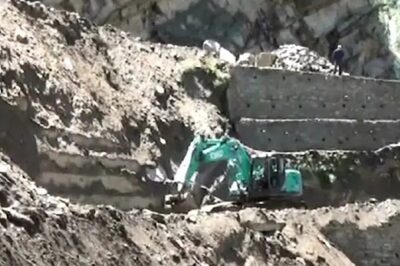
views
Islamabad: Pakistan's army chief told parliament's defense committee the United States should focus on stabilising Afghanistan instead of pushing Pakistan to attack militant groups in a crucial border region, a committee member told Reuters on Wednesday.
Army chief General Ashfaq Kayani also said Pakistan alone will decide if and when to launch a full-scale offensive in the North Waziristan region to attack Islamist militants.
He also said the United States would have to think "10 times" before taking any unilateral action there. Pakistan is not like Iraq or Afghanistan, the parliamentarian quoted Kayani as saying. The MP spoke on condition of anonymity.
"The problem lies in Afghanistan, not Pakistan," the parliamentarian quoted Kayani as telling the committee in a briefing on national security matters held at army headquarters.
Such views could deepen tension between the United States and its uneasy but important ally Pakistan.
The United States, the source of billions of dollars in aid, has urged Pakistan over the years to go after militant groups in North Waziristan who cross the border to attack Western and Afghan forces in Afghanistan.
The pressure has become acute since US special forces killed Osama bin Laden in May in a Pakistani town where he had apparently been living for years.
Admiral Mike Mullan said before retiring as chairman of the Joint Chiefs of Staff last month that a militant group which attacked US targets in Afghanistan was a "veritable arm" of Pakistan's Directorate of Inter-Services Intelligence (ISI).
The remarks infuriated Pakistani leaders, who denied links to the group - the Haqqani network - and said Pakistan has sacrificed more than any other country that joined the US "war on terror" after the September 11, 2001 attacks.
"All intelligence agencies have contacts. Don't the CIA and (the British spy agency) MI6 have such contacts? It is through these contacts that we get information," the parliamentarian quoted Kayani as saying.
"The nice guys don't give you information. It is contacts like this that yield intelligence. It is about whether you use this information positively or negatively."




















Comments
0 comment